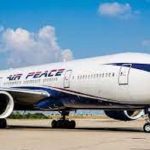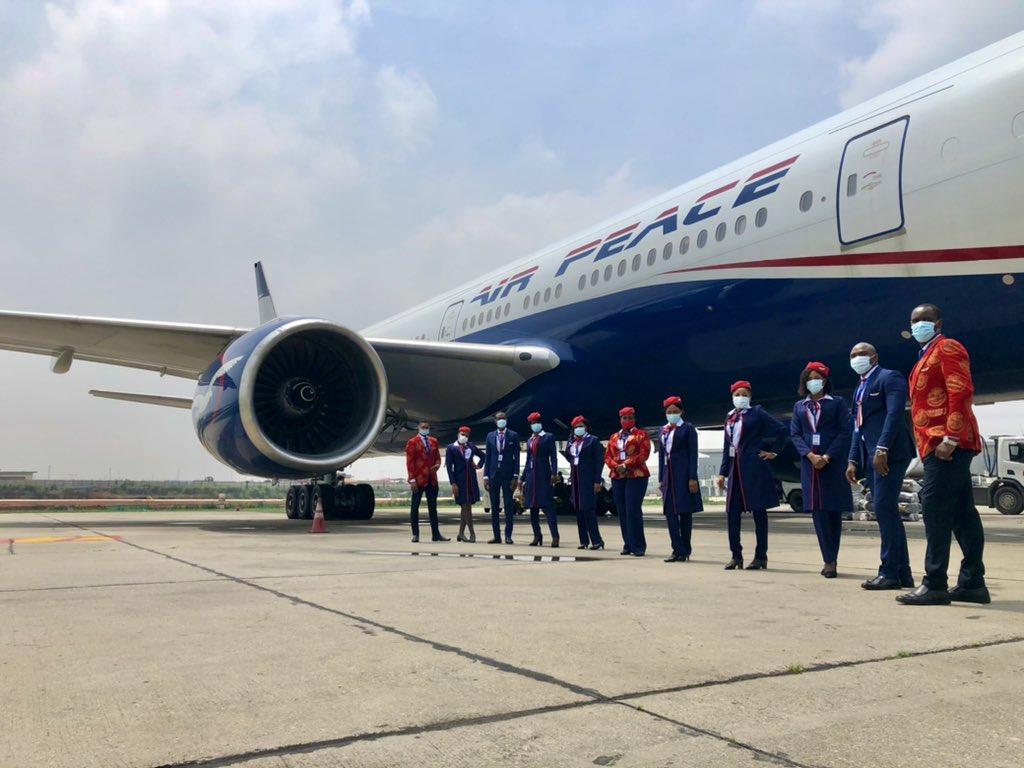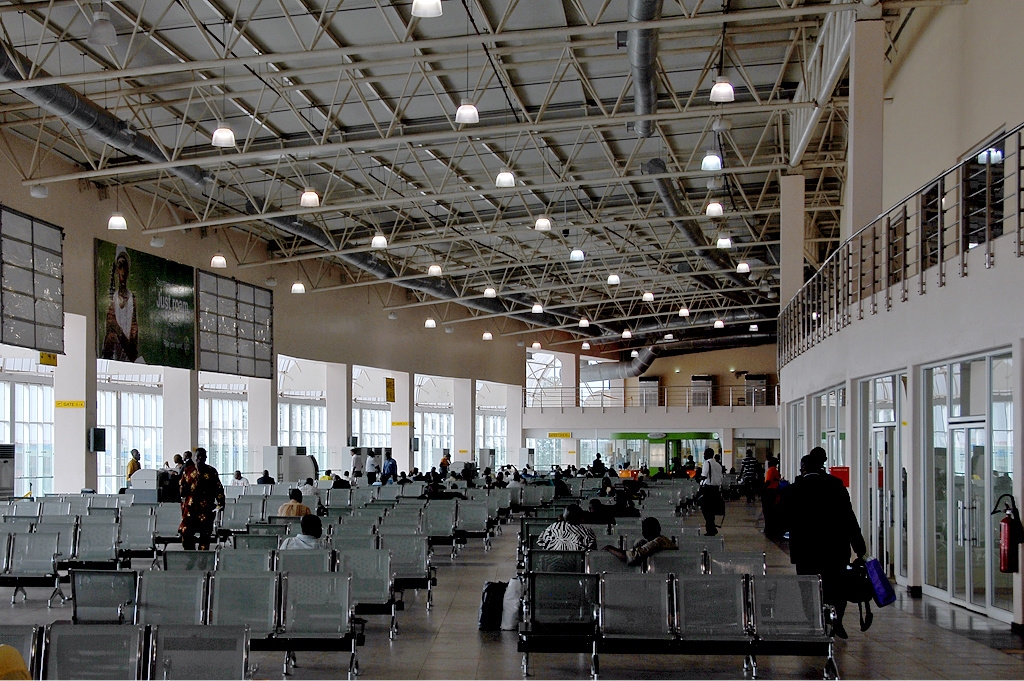
The Chairman and CEO, Air Peace Limited, Dr. Allen Onyema, has commended the plan of the federal government to build transit facility at the Murtala Muhammed International Airport, Lagos, which is part of the planned transformation of the airport infrastructure.
Onyema said that the transit facility remained critical to developing a hub at the airport, noting that one of the factors that retarded the growth of Nigerian airlines is the absence of such facility at any of its airports.
Speaking at the panel section during the League of Airports and Aviation Correspondents (LAAC) conference held recently in Lagos, Onyema said Nigerian carriers could not compete with their foreign counterparts in operating international destinations because they do not have transit terminal where passengers can transit from arrival to departure without passing through immigration, which is the way it is done in other international airports.
He gave kudos to the Minister of Aviation and Aerospace Development, Festus Keyamo, for including the facility in the airport transformation project.
The Ministry recently secured approval from the Federal Executive Council (FEC) approval to rebuild and expand the Lagos international airport terminal with additional infrastructure to upgrade the facility to compete with other major airports in Africa and beyond.
Onyema said that transit terminal is a game changer which can give leverage for Nigerian airlines because it will enable them to bring passengers from different countries in Africa and take them to other African destinations and beyond.
“Air Peace flies to about nine countries in this Africa. You need the airport infrastructure to be able to have a hub. If you, like, have 200 aircraft, you cannot have a hub except the airport infrastructure supports it. We made the request to the Minister who took our request to the President. And our President is a businessman, progressively minded; he approved it. So, we are going to have a hub in Lagos when the facility is completed.
“Let me tell you why the transit facility is important. We took passengers from Douala. We fly Douala. We fly Monrovia. We fly Freetown. We do Banjul (The Gambia). We do Dakar. We do Accra. We do Abidjan.We took passengers from Douala, they were going to Dakar. When we got to Lagos, they were told to pay visa fees. You know they are not ECOWAS member. So, you pay about $400 visa fees before you enter Nigeria. Meanwhile, they were not going to Nigeria.
“They only wanted to transit through a Nigerian airport. But because Nigerian airport has no transit facility, they had to pay for visa. You pass through immigration. You pass through quarantine. You pass through Customs. Then you come out from your arrival. Then you go upstairs again. You come and start checking in. Tell me if that person will fly your airline again to anywhere in the world? Let us call a spade a spade.But if you have transit facility, the passenger will not go through this process; he will stay in the facility and change flight to his final destination,” he said.
Onyema explained how the federal government wanted to help the airlines, and how FAAN quickly started the building of the transit facility.
“When it comes to aviation, the federal government is doing a lot. They want to help the airlines, and they are really helping the airlines. There are servicing us. Things have changed. And I believe that in the next 22 months, this country will have a good airport that we will be proud of. We are doing London and Air Peace is flying to about nine countries in West Africa. I could not take passengers and, bring them to Nigeria and take them out to London. But that is what they are doing in Togo. Togo has no domestic operations. They only have one airport. But what Togo does is convergence of passengers from everywhere. Then they export them from there to other countries,” Onyema said.
According to him, if Nigerian airlines are given the right infrastructure, they will become highly competitive and outdo many of the international carriers that operate to Nigeria.
On other challenges facing domestic airlines, the Air Peace Chairman said that despite the hindrances besetting Nigerian carriers, they are still thriving, saying that one of the major hindrance is the inability to have easy access to credit facility, noting that currently airlines secure loans from banks at 28 to 35 per cent interest, which is inimical to successful operation of the airlines because at best, airlines make low margin profit and accessing credit at such high interest rate takes away the possibility of making any profit.
Another factor that hinders their operation in Nigeria is high insurance premium. Onyema said the premium Nigerian airlines used to insure one aircraft is what they could use to insure seven aircraft in Europe.
“So, if you are talking about finance, without removing those hindrances that affect our bottom line; then, of course, we will continue to go down. Insurance is one of the hindrances. Insurance premium is determined by country risk; not the airline. It is called country risk.They say Nigeria is unsafe and because of that, they raise the bar for premiums. So, we pay a lot of premiums just to insure one aircraft. We pay millions of dollars every year on this.
“It does not happen anywhere else. The vice president of the International Air Transport Association (IATA), visited Nigeria the other time, and during discussion we showed him our books. He screamed. He said, in Kuwait, what is used on one aircraft in Nigeria could insure about seven aircraft in Kuwait. So, you see, you have to give it to the Nigerian airlines. We are not against having partnerships. We are not against belonging to alliances. But I tell you, over the years, it is now that the government of Nigeria is telling the international community that, look, we have to support our own. We have to grow our own. Certain things are going to change,” he said.
Onyema said that operating airlines in Nigeria is a big challenge because you face a lot of obstacles but expressed happiness that the current government is doing a lot to remove those obstacles and gave example with what the Minister did to put Nigeria back to benefitting from Cape Town Convention which informally blacklisted Nigeria and made lessors charge highly for wet lease of aircraft by Nigerian carriers, closing the door tightly on dry lease.
But with the efforts of the Minister, the door on dry lease has been reopened and Nigerian carriers will begin to benefit from such leasing arrangement and there are indications that in the coming weeks some Nigerian airlines may sign dry lease deals with some lessors.
Onyema also said that some critics of Nigerian airlines tend to forget that as private sector driven airlines they do not have the benefits of the defunct Nigeria Airways, which was protected and sustained by government funding; so instead of making comparison with the former national carrier, stakeholders should drum up supporters and find ways to make Nigerian carriers to grow.
Onyema expressed hope that when the transit terminal is built with the transformation and expansion of infrastructural project at the Lagos airport, Nigerian carriers will have new incentives to become more competitive and also have more opportunities to effectively operate sub-regional networks in Central and West Africa, connecting passengers from Africa to farther destinations.






